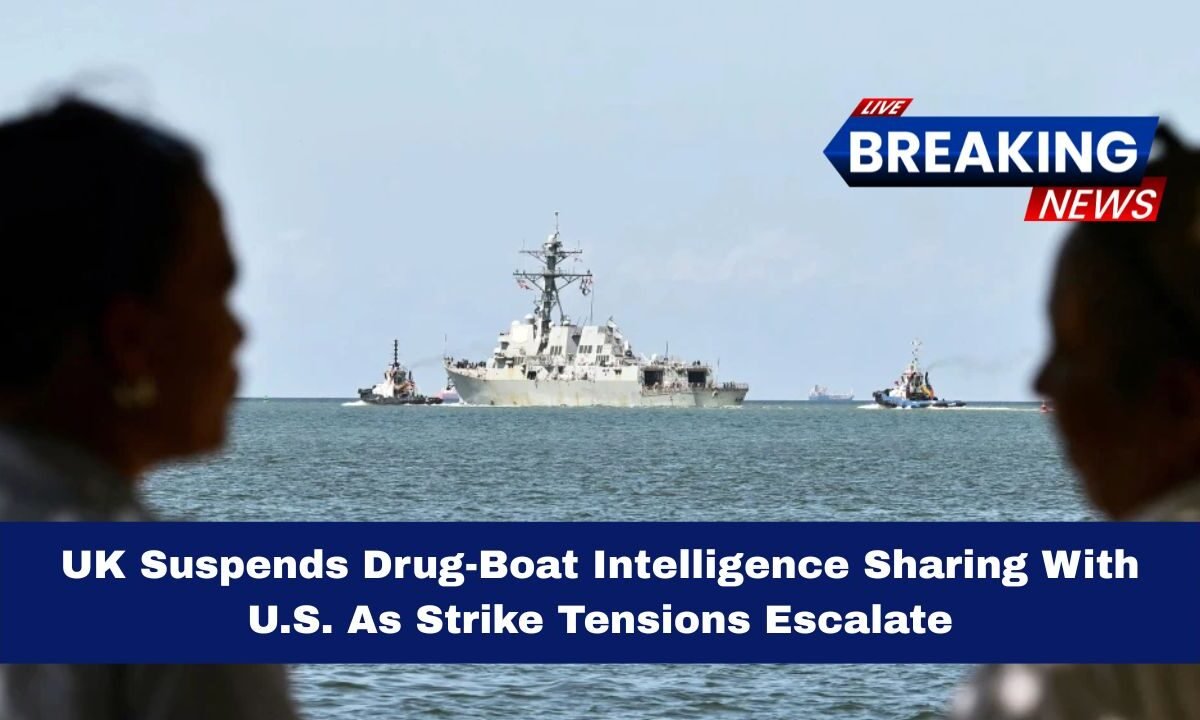Major tensions between the United Kingdom and the United States are now emerging after multiple sources report the UK has halted intelligence sharing on suspected drug-smuggling boats in the Caribbean.
This decision comes amid legal and diplomatic concerns over recent U.S. military strikes targeting these vessels — creating friction between long-time allies.
How the Dispute Unfolded
According to two separate sources, the UK moved to pause transmissions of intelligence related to maritime narcotics-trafficking vessels. The reported reason: serious questions over the legality of U.S. strikes in international waters.
While a Downing Street spokesperson declined to confirm specifics — citing the government’s policy of non-comment on intelligence — they reaffirmed that the U.S. remains the UK’s “closest ally on security and intelligence.”
Meanwhile, U.S. officials maintain that no UK intelligence sharing has been impeded. U.S. Secretary of State Marco Rubio said at a recent G7 meeting that the issue “did not come up” and that operations continue “unimpeded.”
Key Facts & Figures
| Item | Details |
|---|---|
| Intelligence system affected | Caribbean-based drug-boat operations involving UK territories |
| UK intelligence sharing status | Reportedly paused by the UK government |
| Reason for pause | Legal concerns over U.S. maritime strikes targeting suspected vessels |
| U.S. strikes — estimated casualty count | At least 75 people killed in U.S. strikes on suspected drug-trafficking boats |
| UK intelligence-sharing alliance | Part of the “Five Eyes” — UK, USA, Canada, Australia, New Zealand |
| Diplomatic reactions | France and the UN have questioned U.S. strike legality |
| Colombian intelligence response | Reported on hold amid the dispute |
Why the UK Would Withhold Intelligence
The reported UK decision stems from concern over the use of military force against suspected smuggling vessels, which many legal experts argue may not meet the threshold of an “armed conflict.”
The apprehension is that these strikes may violate international law and the law of the sea when carried out without host-state consent or proper legal basis.
Because the UK works closely with the U.S. on maritime security, any doubts about operational legality carry weight. By pausing intelligence sharing, the UK may be signalling that it cannot — under current rules — support or facilitate operations it views as legally ambiguous.
Implications for U.S.-UK Relations
The rift has several important consequences:
- Operational Impact: If the UK continues to withhold intelligence, U.S. efforts to intercept Caribbean-based smuggling networks could be hampered.
- Alliance Strain: As key Five Eyes partners, any intelligence breakdown raises broader concerns about coordination and trust.
- Legal Precedent: The dispute could force the U.S. to more formally justify maritime strikes in terms of international law, or face further pushback.
- Regional Effects: States in Latin America, including Colombia, have already reacted by suspending aspects of cooperation — further complicating counter-narcotics efforts.
With the UK reportedly blocking intelligence on suspected drug-smuggling boats in protest of U.S. maritime strikes, a key trans-Atlantic security partnership has hit a snag.
The move underscores how legal interpretations of military action — even between close allies — can matter significantly.
As the U.S. presses forward with operations it calls necessary to defend national security, the UK’s hesitation reflects its concern about legal risks and the precedent being set. For broader counter-narcotics efforts and alliance dynamics, the stakes are high.




